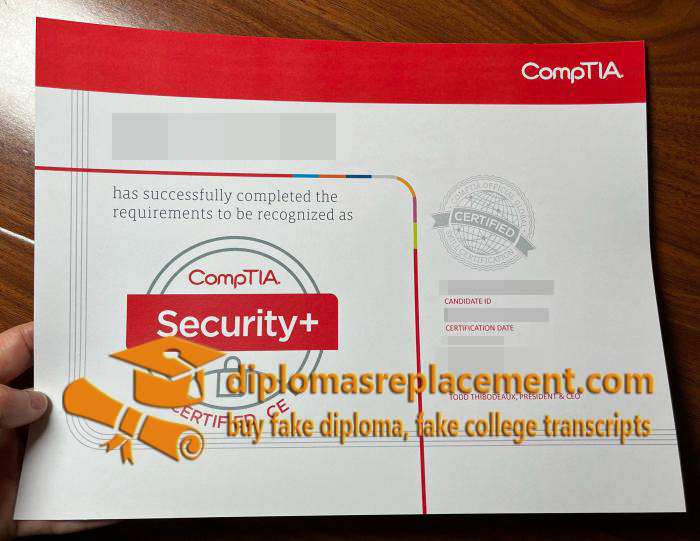
CompTIA Security+ certification proves that you possess the core skills required to pursue an IT security career. buy a fake CompTIA Certificate, For many aspiring cybersecurity professionals, obtaining this popular entry-level certification may be the first step towards a highly rewarding and demanding career.
Security+is an entry-level network security certificate provided by the non-profit industry association CompTIA. It is usually the first information security certification obtained by IT professionals. Through this certification, you can demonstrate your ability to assess the security of your organization, monitor and protect cloud, mobile, and Internet of Things (IoT) environments, understand laws and regulations related to risk and compliance, and identify and respond to security incidents.
How to purchase a fake CompTIA Certificate replacement online?
CompTIA Security+is the most popular certification for cybersecurity professionals, for good reason. fake CompTIA Certificate maker, It focuses on practical operational security skills in six main areas. Preparing for exams can provide you with a broad foundation of practical knowledge and skills needed to handle real-world security situations. The following is a list of areas and topics covered by the exam:
Threats, attacks, and vulnerabilities: This includes social engineering attacks, buy CompTIA Certificate online, newer denial of service (DDoS) attacks, as well as vulnerabilities in the Internet of Things (IoT) and embedded devices.
Architecture and design: Expect to focus on enterprise, cloud, and hybrid environments.
Implementation: This field covers topics such as identity and access management, encryption, end-to-end security, and public key infrastructure (PKI).
Operation and Event Response: This section tests your understanding of the event response process, including threat detection, security control, risk mitigation, and digital forensics.
Governance, Risk, and Compliance: Ensure understanding of key risk and compliance regulations, including HIPAA, GDPR, SOC, NIST, CCPA, FISMA, and PCI-DSS.